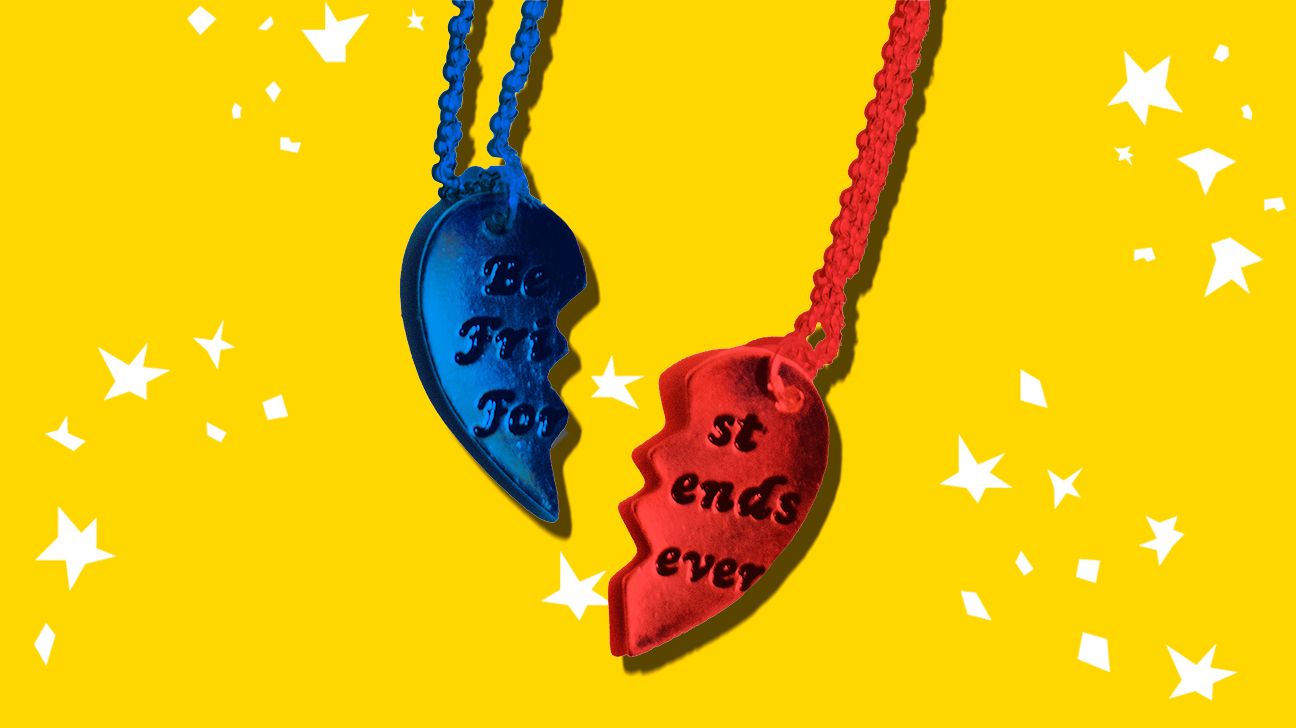What constitutes friendship? How do we choose whom to call a “friend”?
These have never been easy questions. Not now, in the age of social media and deeply partisan politics; not last century, when your mom’s grandma worked alongside strangers at the munitions plant; not at the nation’s founding, when Alexander Hamilton and Aaron Burr were friends before they were enemies.
“Friendships are important in the provision of basic needs for contact, communication, and community,” write Valerie Hill and Tennille Nicole Allen in “Hanging Out: The Psychology of Socializing.” “Developing and keeping healthy bonds,” they write, not only is a boon to our psychological well-being but also provides a long list of physical benefits, including, not incidentally, a longer life.
Or, as Aristotle put it, “the presence of friends, then, seems desirable in all circumstances.”
Aristotle grappled with this lack of clarity more than 2,000 years ago: “Not a few things about friendship are matters of debate,” he wrote in 350 BCE. Though he wondered “whether there is one species of friendship or more than one,” he acknowledged that people can’t “admit each to friendship or be friends till each has been found lovable and been trusted by each.”
Lovable and trusted. That seems like a good place to start.
But what constitutes lovable and what trusted? Is a friend that person with whom you can get wasted and get home? Is it that kid from third grade who was nice when everyone else was mean? Is it a neighbor, a co-worker, a sorority sister? What if they voted for Trump?
About that last option… I recently had a spectacularly 21st-century experience: I tweeted about losing friends over politics, and it went viral. The tweet in question exploded not just across Twitter but also on Facebook, that bastion of friends and friending.
Tweet
At time of writing, the tweet itself had 6,218 retweets and 22,101 likes, but on Facebook, a single account’s reference to it had more than 40,000 likes, 1,400 comments, and 23,000 shares. I’m not on Facebook, but, in an exquisite example of 21st-century meta-ness, at least 10 IRL friends have told me they’ve seen it.
“Someone on here,” I wrote, “recently tweeted something about ‘I haven’t lost friends over politics, I’ve lost friends over morals’ and I can’t stop thinking about it. People think ‘politics’ is this separate, supra-human thing, but it’s your morals in action.”
I’ve constructed better sentences in my life (I’ve also constructed better sentences on Twitter), and I may have misused “supra,” but those 280 characters appear to have hit a nerve. When we learn that a friend has fundamentally different politics from ours, is it like discovering they color their hair, or does it carry more weight than that?
I think it’s clearly the latter. Not always, but much more frequently than we may care to admit.
“Politics” boils down to how you think other people should be treated, and that matters deeply to me — not least because I, too, am a person.
If you support Donald Trump, that tells me a lot about where you stand on my humanity. It tells me you’re not particularly concerned about the times I was sexually harassed, about my right to reproductive choice, or about my fears for my Jewish community. It tells me I can’t feel safe sharing myself with you. And if I don’t feel safe, why would I call you a friend?
“So much of the language we use about friendship is not precise,” says “Hanging Out” co-author Allen, professor and department chair of sociology at Lewis University and (as it happens) my longtime friend. “We use it so loosely that it doesn’t capture the ways that deep and meaningful and really intimate friendships occur.”
Some would argue (and have argued in my mentions) that there’s a question here of loyalty — that some friends deserve the title because, well, longevity, I guess. Longevity and, I imagine, gratitude. But at what cost?
As Allen says, “Loyalty can obscure. It can make you want to hide the intimacy part. The risk is too high — if I want to maintain the friendship, I can’t know you.”
I will acknowledge that here I become less certain. I have a couple of ex-friends whose terrible behavior has rendered them permanently unlovable and untrustworthy to me, but most of my losses have been entirely about the politics of a foreign country where I once lived — people who I no longer wish to call friends but who once did deeply loving and generous things for me. What do I owe them?
I’m still not sure.
Ultimately, to deem another person trusted, you have to be willing to be vulnerable. And, as even Aristotle knew, vulnerability can be hard to achieve — but it’s at the heart of that “deep and meaningful and really intimate” experience. Not every friend has to be your best friend, but if you’re actively hiding a vital part of yourself to maintain a friendship? I would argue that, even if you never say it out loud, that person is not truly your friend.
Most of this is probably internal work — the words we say in our hearts as we choose what to give, what to say, and when to ghost.
We get to make those decisions according to whatever criteria matter to us, though. Today it might be about Trump, tomorrow it may be about who gets to fly to Mars. Who can tell? But you know when you feel safe — and when you do, that’s where friendship lives.
Emily L. Hauser is a Chicago-based freelance writer and librarian. She has written for the Chicago Tribune, The Dallas Morning News, The Atlantic, The Washington Post, The Daily Beast, The Week, and Haaretz, among other outlets. Find her on Twitter.

